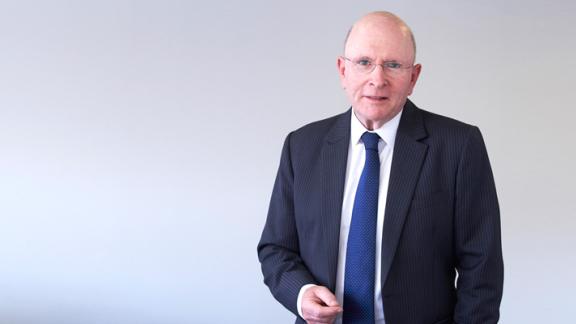Debating who should run the NHS

This week we held our annual debate, which focussed on accountability, one of the areas on which the NHS Plan for England is arguably rather light. We will be producing a report on this soon, but the debate was an attempt to answer the question who runs the NHS? Or to be more accurate, we were really exploring who should run the NHS.
Confed members and friends from partner organisations took part in a discussion led by a panel with Sir Robert Francis, who chaired the Mid Staffs inquiry, Dr Josephine Sauvage from the NHSCC board, Christine Outram, the chair of the Christie NHS Foundation Trust and our chair, Sir Andrew Cash.
From the outset it seemed clear that just about everyone accepted that central accountability was inevitable in a tax-funded system. Some pointed to the fact that the pendulum swings regularly between greater local autonomy and more central control, and that there was no right answer but perhaps sometimes a need to correct overswings in one direction or another.
Equally, there was little enthusiasm for a centrally imposed single model of accountability to be rolled out across the country, although there was an acceptance that local government and other players such as the community and voluntary sector had to be brought in to play a much greater role than in the past.
Too often they have not been seen as equal partners; now there did seem to be genuine interest and enthusiasm to develop integrated care in partnership with other players and even an acknowledgement that doing this alone was doomed to fail. The NHS has to fix many fissures within its own ranks, that much was underlined, but the message seemed to be that the service also needs to reach out like never before.
There was also some reflection on the relationship with patients, users and the public and how this needed to change. Any new models of care it was suggested needed to be co-created with patients and users.
The role of the wider public was also touched on and the strengths and weaknesses of current arrangements such as Health and Wellbeing Boards and Oversight and Scrutiny Committees. Likewise, the advantages of Foundation Trust governors in grounding organisations, even if some were more effective than others.
There were no blueprints arising from this debate, but there was an acceptance that new approaches are being tried out and that overall this is an area of policy and practice that needs more attention.
There was recognition too that developing more robust local arrangements will be important if systems are to resist unhelpful top down interference from the centre. In this area as in others, a key challenge for the NHS will be to learn to work more closely and more effectively with partners.
The one principle which seemed to attract pretty universal support was subsidiarity. That means always devolving decisions and accountability down to the most appropriate level which is nearest the clinical front line. Not a bad place to start.



